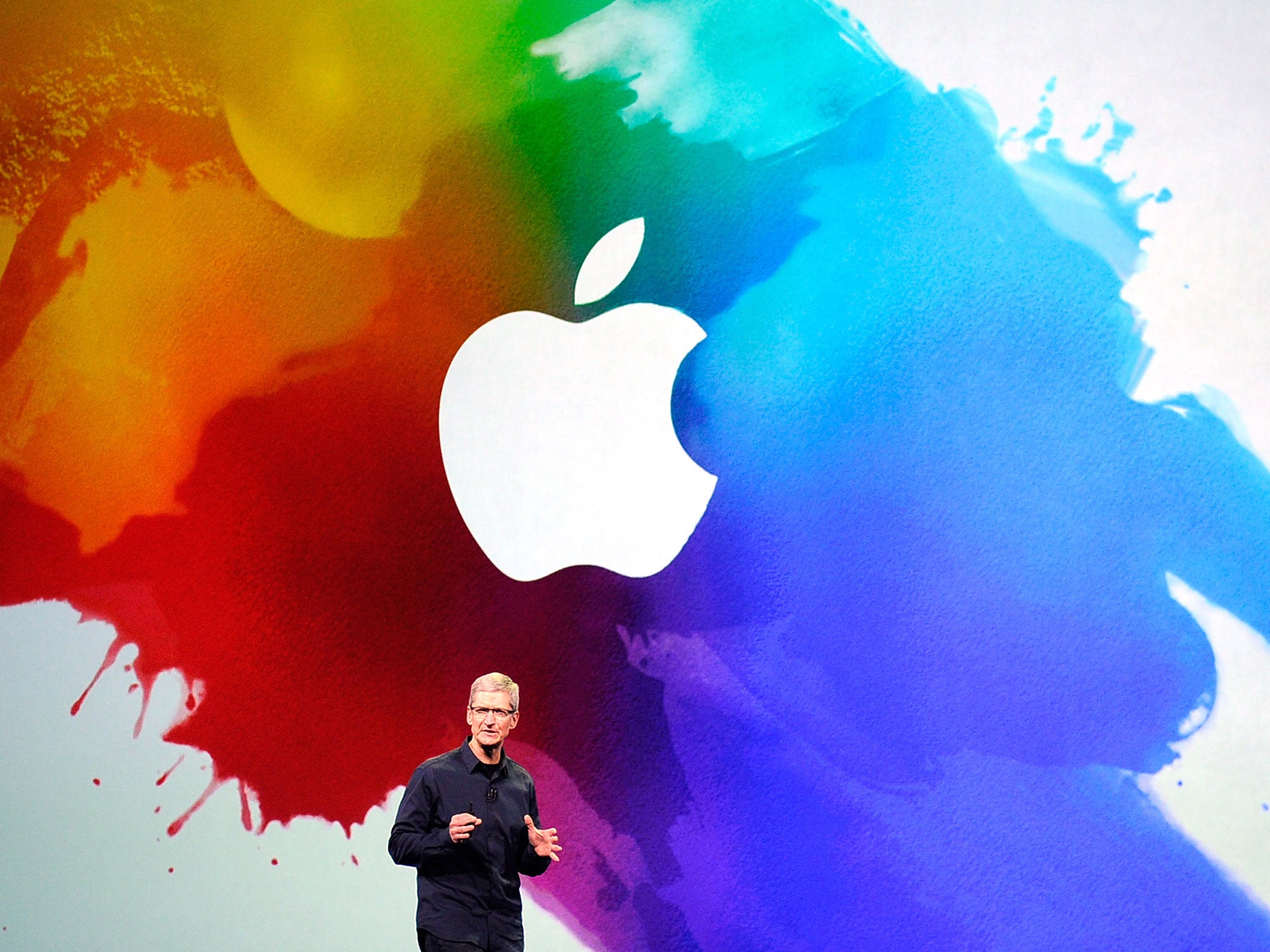How Apple became so successful that its total revenue is bigger than the GDP of some countries
The tech firm has recorded the biggest quarterly profits ever made by a public company

Your support helps us to tell the story
From reproductive rights to climate change to Big Tech, The Independent is on the ground when the story is developing. Whether it's investigating the financials of Elon Musk's pro-Trump PAC or producing our latest documentary, 'The A Word', which shines a light on the American women fighting for reproductive rights, we know how important it is to parse out the facts from the messaging.
At such a critical moment in US history, we need reporters on the ground. Your donation allows us to keep sending journalists to speak to both sides of the story.
The Independent is trusted by Americans across the entire political spectrum. And unlike many other quality news outlets, we choose not to lock Americans out of our reporting and analysis with paywalls. We believe quality journalism should be available to everyone, paid for by those who can afford it.
Your support makes all the difference.Apple is now making so much money it's already bigger than Hong Kong in terms of GDP. Last quarter it sold 34,000 iPhones a second and it could afford to buy pretty much every other famous tech firm with change.
But how did a company that began as a bunch of hippies and nerds in a computer club get to be so big?
First of all, let's see just how big those numbers are:
Apple sold 74.5 million iPhones during the three months that ended on 31 December. That’s 34,000 iPhones an hour every day of the quarter. It's also more than the entire population of the UK:
Apple's total revenue for the first quarter was $74.6bn. If this trend continues for the next three quarters, that would bring total revenue to at least $298.4bn, which is a larger figure than the GDP of Hong Kong:
Apple made quarterly profits of $18bn. That's just under 25 per cent of the total estimated wealth of the world's richest man, Microsoft co-founder Bill Gates:
Apple doesn't look set to slow down anytime soon. So, what's its secret?
Despite being an undeniable pioneer, Apple hasn’t ever really invented anything. Its three biggest launches in the past decade or so - the iPod, iPhone and iPad - have all been updated versions of products that already existed but weren’t making the most of their potential.
Even the innovation that drove Apple's recently announced record profits wasn't really new. Apple decided to make its phones bigger - years after everyone else had done.
But as Independent technology writer David Phelan notes, "with the iPhone 6 and 6 Plus, Apple did what it does best: matched strong technology with ground-breaking design."
Apple doesn’t always do things first. But it almost always does them best.
Part of how they achieve that is by having a stronger sense of the importance of aesthetics and ease of use than its rivals. There might have been smartphones, tablets and MP3 players before Apple introduced its own versions, but many of them looked downright ugly and weren’t much fun to use.
To do that, Apple doesn’t usually cut down on quality - its products usually have the same kind of technological innovations as its rivals, if not more. But it makes them simple, pointing out how they can be used to make things easier and quicker, rather than showing off about specifications or having the latest widget or gizmo.
But one of Apple's tricks is that once you buy one of those products, you're going to buy more.
Everything that Apple makes works together so seamlessly (or is supposed to) that having a phone and laptop isn't just a matter of everything looking nice together, they also work nicely together too.
Messages sync across the company's apps, for instance, and devices can be used to control one another. Apple has been increasingly encouraging that approach, building new ways of letting different Apple devices talk to each other under the banner of its Continuity and Handoff services.
It’s what occasionally leads some of Apple’s doubters to call it cult-like - once you go Apple, you rarely go back. But that and other qualities also mean that more people are going Apple than ever before.
Join our commenting forum
Join thought-provoking conversations, follow other Independent readers and see their replies
Comments